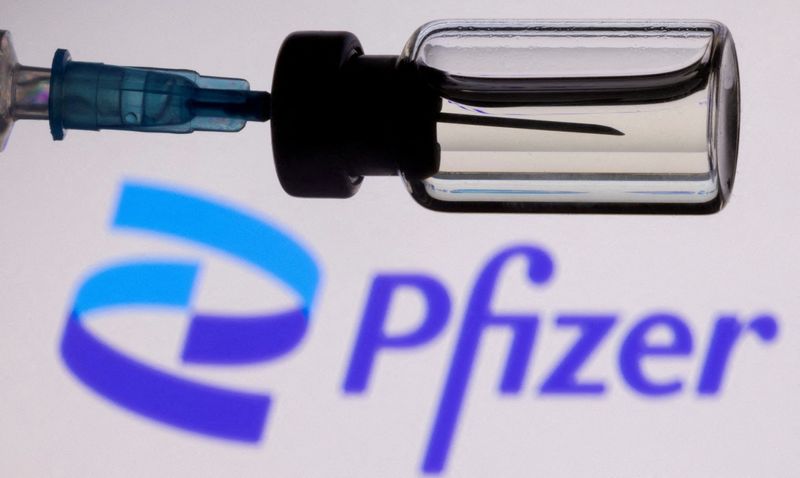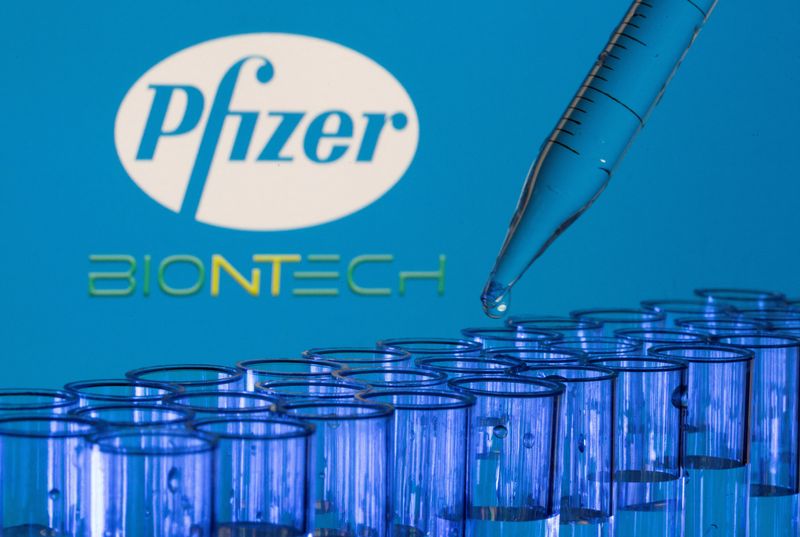(Reuters) -Pfizer Inc and its German partner BioNTech SE (NASDAQ:BNTX) said on Friday their Omicron-tailored shot produced higher virus-neutralizing antibodies in older adults against the emerging subvariant BQ.1.1 than its original vaccine.
Antibody levels against the subvariant rose nearly nine-fold in older adults, aged 55 and above, who received the Omicron shot compared to a roughly two-fold increase in participants with the original shot, according to data posted on online archive bioRxiv.
There were around 40 participants in each of the vaccine groups.
The subvariant and related BQ.1 are gaining ground in the United States, and are expected to cause a rise in cases in the winter in Europe.
They contain genetic mutations that make it harder for the immune system to recognize and neutralize the virus, making them better at infecting people in spite of immunity from vaccinations and prior infections.
Together, the BQ.1 and BQ.1.1 subvariants, which are closely related to the BA.5 Omicron subvariant, are estimated to account for about nearly half of COVID-19 cases in the United States in the week ending Nov. 19.
The BA.5 subvariant is still the most prevalent, at an estimated 29.7% of all cases in the country.
The companies had recently released data that showed their Omicron-tailored shot produced a strong antibody response in older adults than the original shot after one month against the BA.4/5 subvariants.

Pfizer (NYSE:PFE) and BioNTech said the bivalent shot also produced an immune response against newer Omicron subvariants including BA.4.6, BA.2.75.2 and XBB.1.
Based on data from preclinical studies, Omicron-tailored shots made by Pfizer and rival Moderna (NASDAQ:MRNA) Inc have already been approved in the United States for adults and for children as young as five years.
